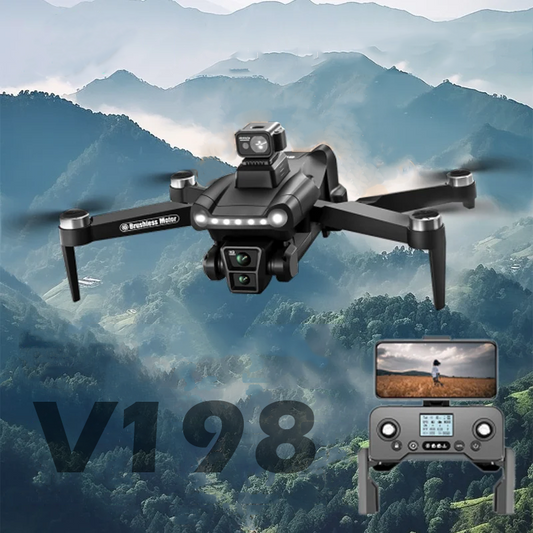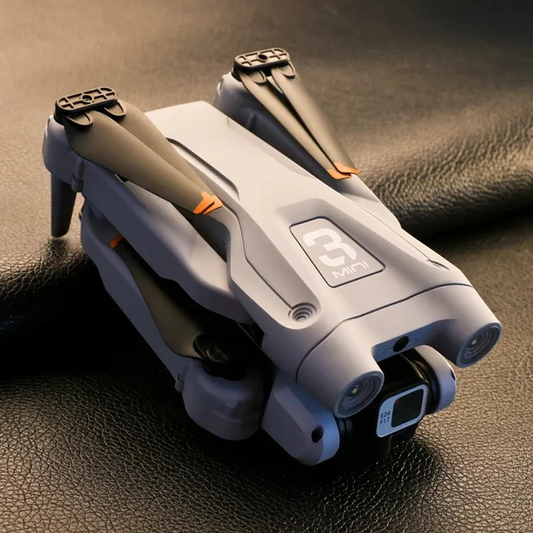The Role of Drones in Port and Maritime Security

In an era of advancing technology, the maritime industry stands at the forefront of innovation to ensure safety and security. As ports become increasingly integral to global trade, the need for robust security measures has never been more paramount. Among the array of cutting-edge tools transforming maritime security, drones have emerged as a game-changer, revolutionizing surveillance, monitoring, and response capabilities. In this article, we delve into the pivotal role of drones in fortifying port and maritime security, safeguarding vital infrastructure and international trade routes.
1.Understanding the Imperative of Port and Maritime Security

Ports serve as vital gateways for international trade, facilitating the movement of goods and commodities across continents. However, this critical infrastructure also presents an attractive target for a myriad of security threats, ranging from terrorism and smuggling to piracy and illegal fishing. Ensuring the safety and security of ports and maritime environments is not merely a matter of protecting assets but also upholding global commerce and safeguarding national interests.
2.The Evolution of Maritime Surveillance:

Traditionally, maritime surveillance heavily relied on manual patrols, radar systems, and surveillance cameras. While these methods remain fundamental, they are often limited in scope and effectiveness, particularly in vast and challenging maritime environments. The advent of drones has transformed the landscape of surveillance, offering unparalleled capabilities in terms of versatility, mobility, and real-time data acquisition.
3.Leveraging Drones for Enhanced Surveillance and Monitoring

Drones, also known as Unmanned Aerial Vehicles (UAVs), are equipped with a variety of sensors and imaging technologies, enabling them to gather critical data from above. From high-resolution cameras and infrared sensors to LiDAR (Light Detection and Ranging) systems, drones provide comprehensive situational awareness, even in remote or inaccessible areas. This aerial perspective allows security personnel to detect suspicious activities, monitor vessel movements, and identify potential security breaches with precision and efficiency.
4.Strengthening Border Control and Anti-Smuggling Operations

One of the primary challenges in port security is combating smuggling activities, including the illicit trafficking of drugs, weapons, and contraband goods. Drones play a pivotal role in augmenting border control efforts by conducting aerial patrols along coastlines and maritime borders. Equipped with advanced surveillance capabilities, drones can detect and track vessels engaged in suspicious activities, enabling authorities to intercept illegal shipments and apprehend perpetrators before they reach their destination.
5.Combating Maritime Piracy and Intrusions

Maritime piracy remains a persistent threat to seafarers and vessels navigating high-risk areas such as the Gulf of Aden and the Strait of Malacca. Drones offer a proactive approach to maritime security by conducting reconnaissance missions and monitoring pirate activities in real-time. By providing early warning and intelligence gathering, drones empower maritime authorities to deploy swift and targeted responses, including naval patrols and intervention operations, to deter and disrupt piracy attempts effectively.
6.Enhancing Environmental Protection and Disaster Response

Beyond security concerns, drones contribute to maritime safety by supporting environmental protection and disaster response efforts. Oil spills, marine pollution, and natural disasters pose significant risks to marine ecosystems and coastal communities. Drones equipped with specialized sensors can quickly assess environmental hazards, monitor the spread of pollutants, and coordinate emergency response operations. By providing timely and accurate data, drones help mitigate the impact of environmental incidents and facilitate swift recovery and cleanup efforts.
7.The Future of Maritime Security:

As technology continues to evolve, the future of maritime security promises further advancements in drone technology and integration with other emerging technologies such as artificial intelligence (AI) and autonomous systems. AI-powered drones equipped with predictive analytics and machine learning algorithms can anticipate security threats and adapt their surveillance strategies accordingly. However, along with these opportunities come challenges related to regulatory frameworks, privacy concerns, and cybersecurity risks, which must be addressed to ensure the responsible and effective use of drones in maritime security operations.
In conclusion, drones have emerged as indispensable assets in fortifying port and maritime security, offering unparalleled capabilities in surveillance, monitoring, and response. By leveraging the power of aerial reconnaissance, drones empower maritime authorities to detect and deter security threats, safeguard vital infrastructure, and uphold the integrity of global trade routes. As we navigate the complexities of an ever-evolving maritime landscape, the integration of drone technology will continue to play a pivotal role in ensuring a safer and more secure maritime future for generations to come.
Explore a variety of drones at our online drone strore.
Happy Flying!









